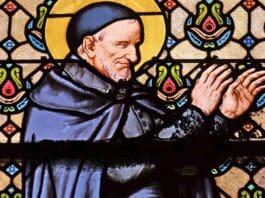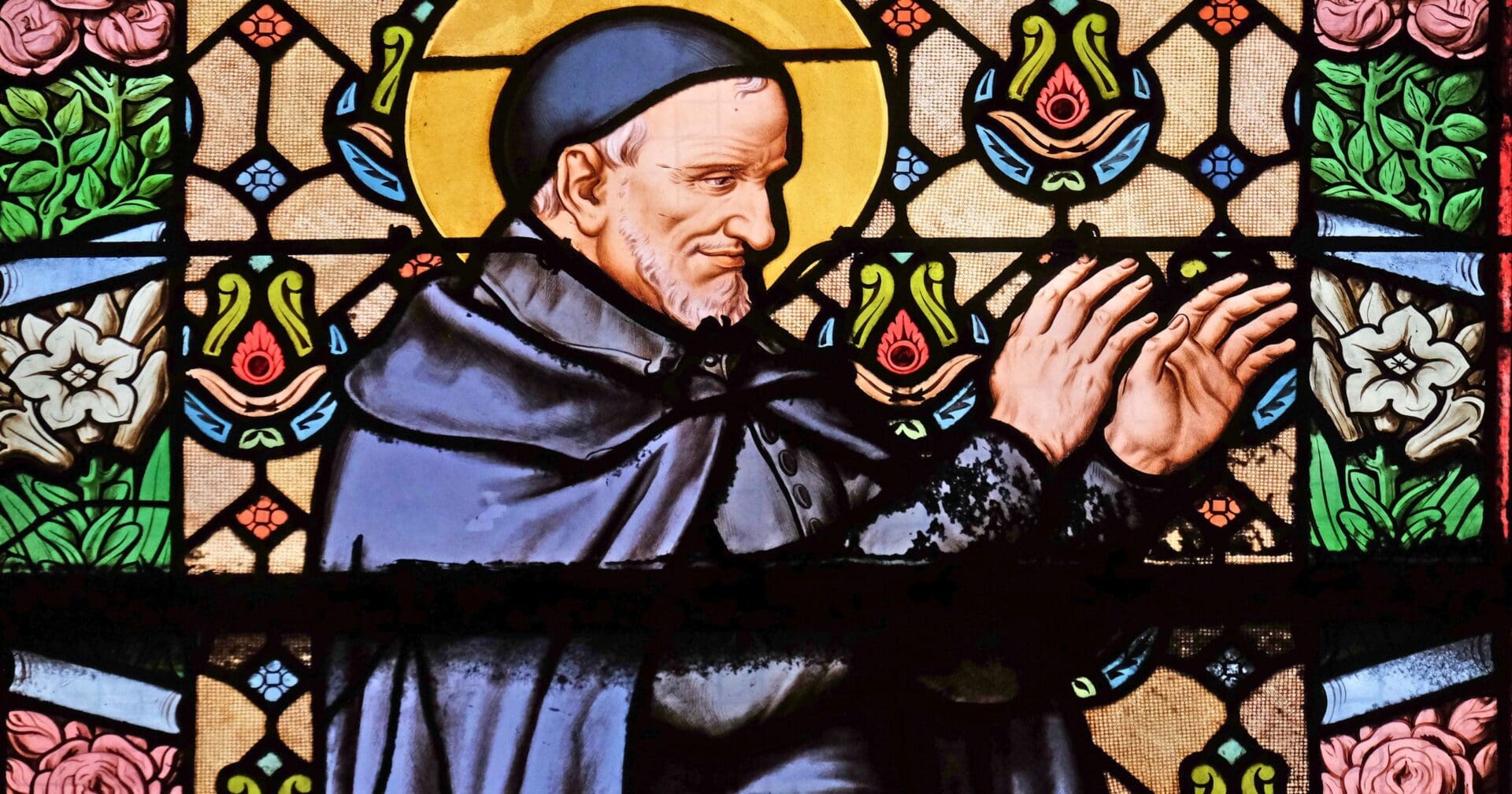
Saint Vincent de Paul, born circa 1580 in the modest village of Pouy in Gascony, France, hailed from a humble background.
His early education was spearheaded by the Franciscan Fathers at Acqs. Such was his academic prowess that within four years, he was selected by a nobleman to tutor his children, allowing Vincent to further his studies without straining his family financially.
In 1596, Vincent ventured to the University of Toulouse to delve into theological studies and became a priest by 1600. However, a significant turn of events occurred in 1605 during a sea journey from Marseilles to Narbonne: he was captured by African pirates and taken as a slave to Tunis. Approximately two years later, through a stroke of divine intervention, Vincent managed to escape his captors. Following a brief stint in Rome, he settled in France, securing a position as a tutor for the family of Emmanuel de Gondy, the Count of Goigny and a key figure in the French naval forces.
By 1617, Vincent initiated missionary works. In 1625, he laid the groundwork for what would eventually evolve into the Congregation of the Mission or Lazarists, named after the Priory of St. Lazarus, which they began to inhabit from 1633.
His overwhelming sense of charity reached out to all, from destitute children to the elderly. Additionally, the Sisters of Charity owe their inception to him. Despite being lauded by high-ranking individuals, Vincent’s humility remained unshaken. In 1660, aged eighty, the illustrious Apostle of Charity passed away in Paris.
St. Vincent de Paul is counted among the Incorruptibles. This unique group of saints exhibit no decomposition post-death, symbolizing Christ’s triumph over mortality.
Editorial credit: Zvonimir Atletic / Shutterstock.com
The post Saint Vincent de Paul appeared first on uCatholic.
Daily Reading
Thursday of the Second Week in Ordinary Time
Reading 1 Hebrews 7:25—8:6 Jesus is always able to save those who approach God through him, since he lives forever to make intercession for them. It was fitting that we…
Daily Meditation
Finding Solace in Jesus
Click here for daily readings “He had cured many, and, as a result, those who had diseases were pressing upon him to touch him” (Mk 3:10). This scene opens with…




